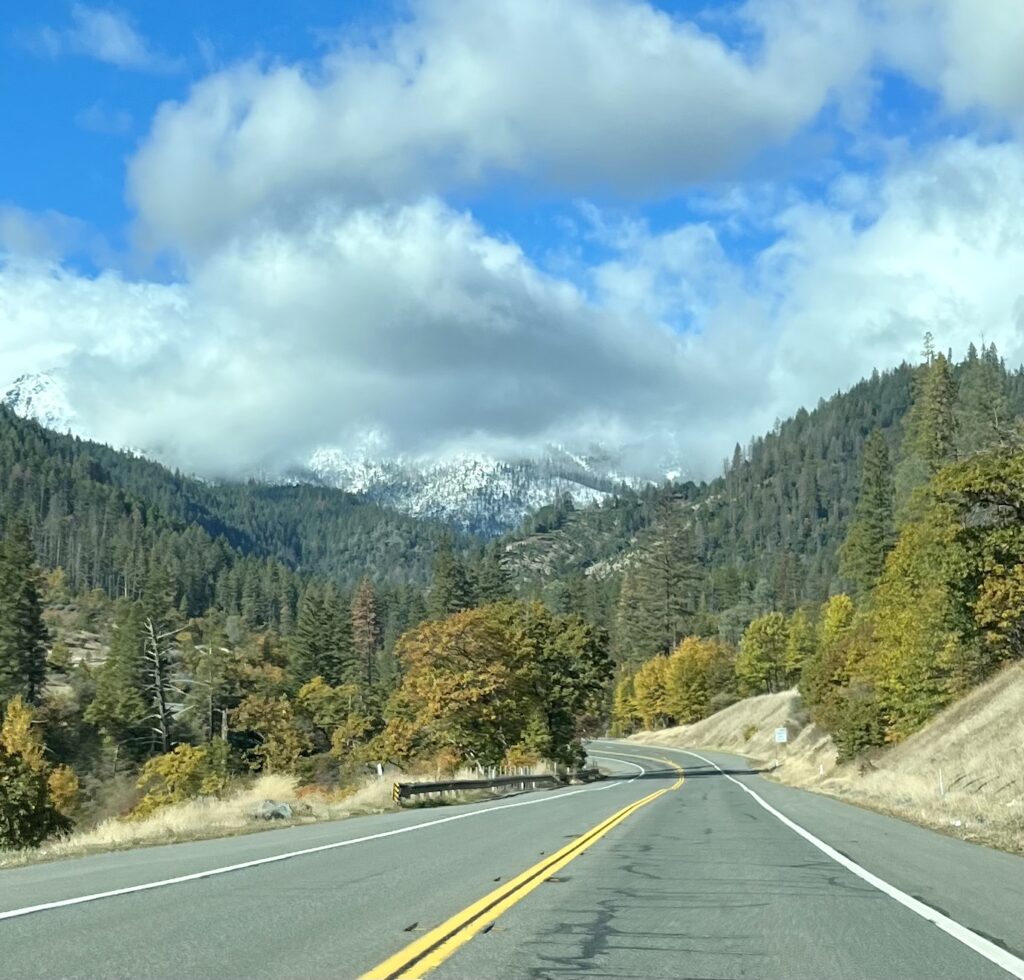
As I drove away, I couldn’t shake the nagging feeling I’d made a big mistake. A feeling made only heavier by the dark road ahead of me. A feeling that stayed with me all the way home.
Pelican Bay State Prison sits just north of Crescent City – roughly 75 miles from my home in Arcata. Most Tuesday afternoons, I am treated to an absolutely stunning drive. In some parts, massive Redwoods line the highway only to be occasionally broken by the still waters of big lagoons where families of ducks peacefully paddle away. In other parts, the road overlooks the rocky coast dotted with slow-moving, white-capped waves as far as the eye can see – a mystical beauty the latest and greatest iPhone camera never seems to fully capture.
And then of course there’s the herds of elk outside of Orick, an old timber town that was once the center of the logging universe. Now, the massive and majestic elk with huge antler racks seem to run the place – always moving through life at their own pace. Sometimes lounging around in a pasture on the side of the road. Sometimes deciding to stand in the middle of the road. Most people just stop the car to watch them as they eventually go about their business. Or at least I do.
But when the sun goes down, the vast majority of the drive is plunged into near-complete darkness. All of the beauty just outside the car window a few hours before disappears into the pitch black. I know it’s there. But, I can’t see it at all. And with nothing to see except for the twists and turns of the narrow road within my high beams, I’m often left to concentrate on making it home safely. And to think about my time in the classroom just a bit before. To think about what might have been a mistake – the harsh truth.
The focus of this particular evening was an in-depth look at the legislative branch – specifically the U.S. Congress. I walked through a Member’s journey from candidate to incumbent, the structure and organization, and the ultimate decision points on most legislative efforts.
But, when the evening’s lesson turned to the messy process of transforming an idea into a law, I decided to discuss the California State Legislature and Assembly Constitutional Amendment 4 (ACA 4) by Los Angeles Assembly Member Isaac Bryan – a bill to give incarcerated people the right to vote.
To get us started, I provided a handout with the actual bill language and waited for the class to read it. When I asked them what it said, a couple of them ventured to guess – guesses that centered on each of them obtaining the right to vote upon their release from prison. But, the right to vote was extended to Californians on parole or probation by California voters with the passage of Proposition 17 in 2020.
When I explained the rights that ACA 4 would restore to them while incarcerated, it was as if I had told them the bill would enable them to walk on water. Or the Moon. They simply didn’t believe it. One asked, “Is this for real? Is this some “a politician wants to make a point” BS?”
The only response I could muster was, “Well, let’s walk through all steps it will take to get this bill passed by two-thirds of the State Assembly, then two-thirds of State Senate, then two-thirds of the voters of California, and then you tell me what you think this bill is all about. Fair?” Fair.
First, we discussed why a Member might support or oppose ACA 4. One student raised his hand and delivered a 45-second statement that would rival the artful public comment of an experienced and passionate advocate.
“The Declaration of Independence says that we are all given rights that cannot be taken away. One of those rights – the right to vote – is the right to have a say in our community and the government that governs that community.”
He continued. “Yeah, we’re locked up today. But, we’re still a part of a community. With family and friends. With people we care about and who care about us. And we’re still impacted by the decisions of government – really, really impacted by the decisions of government!
“And if the Declaration of Independence is to be believed, then some rights we’re given as people cannot be taken away. Because we’re American citizens. Even if we’re American citizens who happen to be incarcerated at the moment.
“We count as people when they want us to count. Shouldn’t we count as people now? This is about our humanity and denying us this right is like saying we don’t exist.”
The room was still when he finished. He had a point. Even if some might argue otherwise.
And as soon as I asked the class to make the counter argument, a quiet student in the front row quickly turned to the negative words I could tell he’d heard plenty of times before, “A bunch of convicts and criminals don’t deserve it. They don’t deserve anything at all.”
The mood changed again. A reminder of what this particular conversation might mean seemed to quickly push them back to a “too good to be true” mindset. But together, we pressed on.
Introduction in the Assembly. Rules Committee. Elections Committee. Public Safety Committee. Appropriations Committee. A two-thirds vote on the Assembly Floor.
